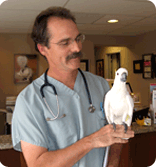Overweight Amazon questions

URGENT - I have been a WPT member for well over 20 years and have an urgent question: My Panama Amazon was recently ill and very nearly died. She had stopped eating and had to be fed with a tube. She was in the care of our Avian Vet who, like myself, did not realize that she is obese. The Avian specialist who read her blood results and her xRay said it was probably her liver due to obesity. (She weighed 520 grams). I was told to feed her ANYTHING she would eat and eventually, she did begin eating again. She has been raised on a diet of Harrison's pellets plus fruits and vegetables. She is 17 years old. I found that the weight for a Panama Amazon is normally 480 grams. I ordered an avian scale and began feeding her a diet of phytonutrients as recommended by David McCluggage, DVM (on the web) who maintains that amazons should NOT be fed mostly pellets. I was shocked when the scale arrived and she weighed 615 grams! She has been on this super healthy diet for a month now, with only one or two pellets a day and one "NutraBerry" seed treat. But, AND HERE IS MY DILEMMA/QUESTION: She has NOT lost weight. She weighs around 630 grams. She does get some exercise as she is outdoors in a large macaw cage during the day. I don't know how I can get her to exercise more. I try with interactive toys, etc. She chews a lot and sings opera!! I am terrified she will become ill again if she doesn't lose weight. PLEASE ADVISE: I can't find any answers online after endless searching. Thank you so very much for taking the time to ready this lengthy question/explanation. I am so very, very grateful!
Thanks, Linda

Hi Linda,
First qualifiers - since I have not examined your bird, I cannot factually corroborate or deny your working premise and diagnosis of obesity and true need for your bird to lose weight. This call should be made with the examining veterinarian you are currently working with. There is considerable variation in body weight for this species - just as there is in human beings! A large bodied and well-muscled bird may weigh easily as much as the numbers you report, and others may be quite obese at those same numbers. Be careful of managing a number (weight) instead of the true bird before you. Ideal weight should be somewhat individually defined, based on the presence of good pectoral muscle mass and an absence of visible or identifiable subcutaneous fat over the abdomen and lateral flanks. This requires the periodic physical examinations of you and your veterinarian. Many Amazon parrots can be maintained in excellent health on a predominately pelletized diet - this data has been around for quite some time.
So, I am somewhat unable to make factual recommendations that will be most appropriate for you and your bird - if clinical obesity is known to be present, work with your veterinarian to reduce caloric intake and increase foraging and caloric burn activities via enrichment of other behaviors. Make sure that weight management is not being based on mere deprivation of calories, but by enrichment. If your bird has gained weight (muscle) but lost fat - you actually may be in a good position at present time. It all depends on the hand's on evaluation and assessments of you and your attending veterinarian.

































